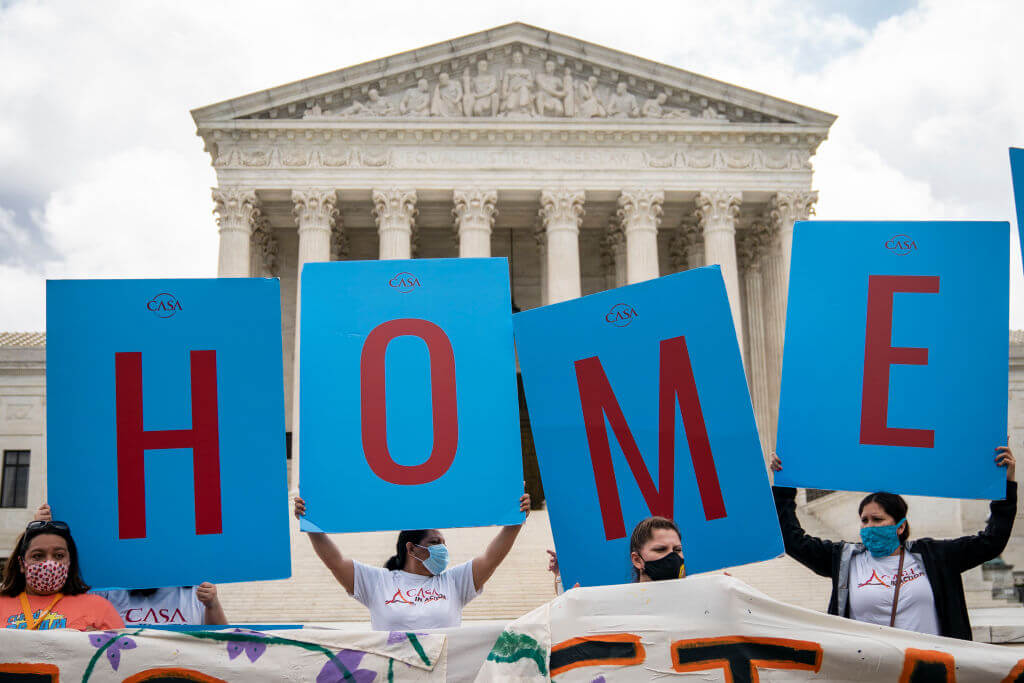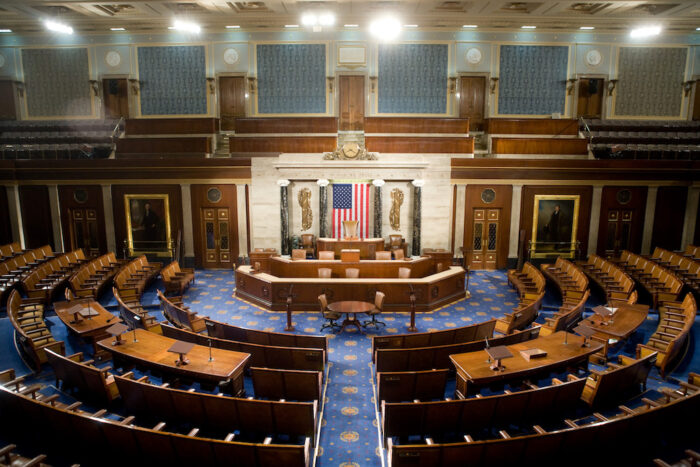
President Biden is poised to send a sweeping immigration reform bill to Congress Thursday that would lay out a path for nearly 11 million undocumented people to obtain citizenship within eight years.
Immigration has been one of the toughest issues for Congress to tackle, and the legislation’s fate is unclear in a House in which Democrats wield narrower control than in the past and a 50-50 Senate where Vice President Kamala Harris can break a tie vote for Democrats.
But Biden has pledged to act swiftly on immigration, and his proposed legislation is accompanied by executive actions including halting construction on the border wall, ending the Trump administration ban on U.S. entry for people from Muslim-majority nations and pausing some deportations.
Gustavo Torres, executive director of CASA, a regional immigrant rights organization based in Hyattsville, said that after years of being targeted and scapegoated by the Trump administration, immigrants in the U.S. are getting what they prayed for in Biden — a trusted partner who will work to boost their rights and opportunities.
“We are never tired of climbing this hill, seeking an intersectional approach to a justice that includes all of us,” Torres said. “And now for the first time in four years, dignity, opportunity, and citizenship are within reach. We worked for, prayed for, and secured a trusted partner for peace and security for people of color. Welcoming in the Biden-Harris administration means getting the freedom to pay our rent, drive to work, and care for our children.”
The Biden administration has released a summary of its bill, the U.S. Citizenship Act of 2021, which would also allow applicants in the Deferred Action for Childhood Arrival to apply for permanent residency.
DACA is an Obama administration initiative for individuals brought into the country illegally as children, and there are more than 700,000 people enrolled.
The proposal is a stark difference from the Trump administration, which spent four years assaulting any form of immigration in the U.S., from trying to eliminate the DACA program to separating families at the border. The last time the U.S. passed sweeping immigration reform was 1986.
“Today, President Biden turned the page on a dark chapter in American history,” House Homeland Security Chairman Bennie Thompson (D-Miss.) said in a statement. “The time to fix our broken immigration system is long overdue, and I look forward to working with President Biden and his Administration towards securing much needed reforms.”
If passed by Congress, the bill would allow undocumented individuals such as DACA recipients, Temporary Protective Status holders and “immigrant farmworkers who meet specific requirements” to apply for temporary legal status. After five years, those individuals could apply for green cards if they pass background checks and show they pay taxes.
After three more years, those green card holders could apply to become citizens if they again pass background checks and pass the citizenship test.
While the bill would likely pass the House, it’s unclear if Democrats have enough votes in the Senate.
The last time Democrats tried to pass a bipartisan immigration bill that would have laid out a path to citizenship within 13 years for undocumented people was in 2013. It passed the Senate, 68-32, but was never brought to the House floor under Republican control.
Even without Congress, the Biden administration Department of Homeland Security is moving forward with pausing removal of noncitizens who are under deportation orders “to ensure we have a fair and effective immigration enforcement system focused on protecting national security, border security, and public safety,” the agency said in a memo Wednesday.
“The pause will allow DHS to ensure that its resources are dedicated to responding to the most pressing challenges that the United States faces, including immediate operational challenges at the southwest border in the midst of the most serious global public health crisis in a century,” the agency said.
Biden’s bill reforms family-based immigration by allowing “immigrants with approved family-sponsorship petitions to join family in the United States on a temporary basis while they wait for green cards to become available.” It also clears backlogs, eliminates wait times and increases the number of per-country visa caps.
The bill would also improve immigration courts by expanding programs to manage family cases, which would reduce backlogs in court and also expand training for judges to handle those cases.
A large section of the proposal also aims to deal with the causes of mass migration.
The bill allocates $4 billion to address migration in El Salvador, Guatemala and Honduras, with the goal of reducing “corruption, violence, and poverty that causes people to flee their home countries.” It would also reinstate the Central American Minors program, which reunites children with their relatives in the U.S., and would also create “the Central American Family Reunification Parole Program to more quickly unite families with approved family sponsorship petitions.”
Torres said CASA is hoping the legislation will be amended to include greater protections for for Cameroonians and all Central Americans, “whose hard advocacy must not be overlooked in the struggle for immigrant justice.”
Several Republicans have already voiced their opposition to Biden’s immigration reform plan, and GOP operatives are signaling that they will seek to capitalize on the issue in upcoming elections.
In a statement, National Republican Senatorial Committee spokesman Chris Hartline called the legislation radical.
“The proposal by President Biden would give amnesty to eleven million illegal immigrants with no effort whatsoever to secure the border,” he said.
However, the proposal does address security at the border and focuses on using technology to screen for narcotics and other contraband at various checkpoints.
It also allows for the expansion of investigations into drug trafficking and allows DHS to develop strategies to improve ports of entries for asylum seekers.
Maryland Matters reporter Josh Kurtz contributed to this report.




 Creative Commons Attribution
Creative Commons Attribution